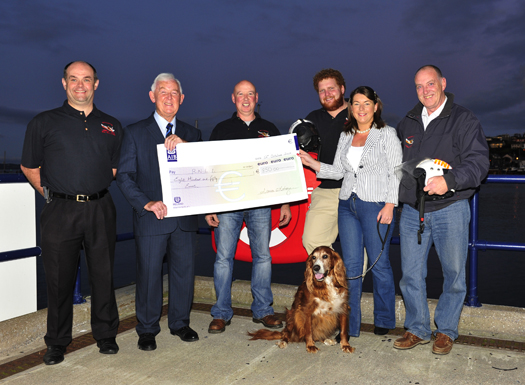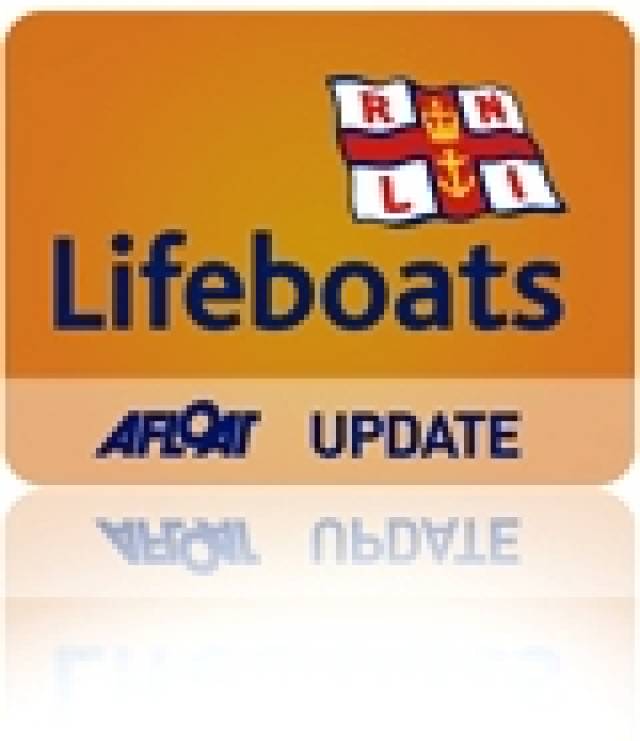In April of last year, Laura was walking her dog near Hop Island, when he ran out over the mud flats and got stuck in the mud. Laura went after him and eventually got bogged down herself. Her predicament was fortunately noticed from the shore line and the volunteer RNLI lifeboat from Crosshaven was tasked along with the Coast Guard helicopter, the fire service and local Coast Guard units to attend.

Bernard Lynch, Barry Woods, Chairman, Crosshaven RNLI, Vincent Fleming, Denis Cronin, Laura O'Mahony and Alan Barton, Lifeboat Operations Manager, Crosshaven RNLI and SAM
Volunteers Vincent Fleming, Denis Cronin and Bernard Lynch made best time to the area as the rising tide was filling rapidly. Crewman Fleming managed to thread the lifeboat through the flats until he got near to Laura, at which point Bernard Lynch entered the water and extricated Laura and 11 year old Sam into the lifeboat. Laura was then handed over to the care of paramedics at the shore. Thankfully, Laura and Sam were uninjured.
Laura remarked, "I never thought I'd have to use the services of the lifeboat but I am most grateful to them. They are so hard working and lovely, and were so kind when they rescued us. When I saw them I knew we were safe. They kept on reassuring me."
In the intervening period, Laura has raised €850 for the RNLI, and on Wednesday last visited the Lifeboat station with Sam to hand over the proceeds and personally thank the crew. She said "This cheque is just a small way of saying thank you,"































































